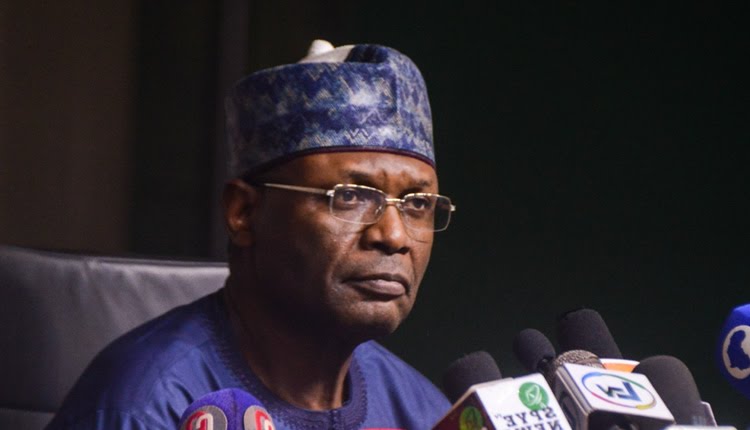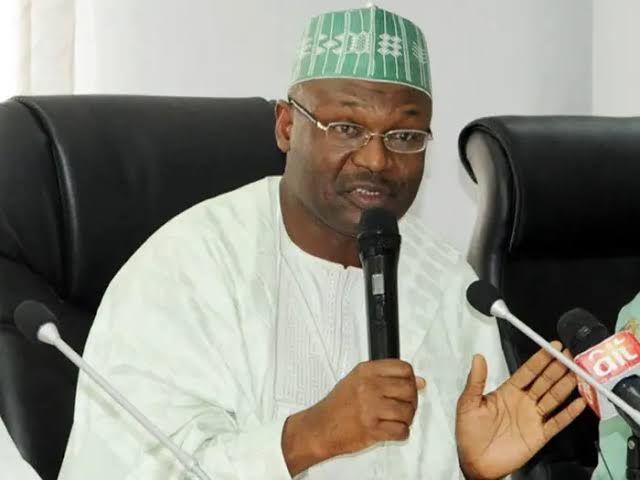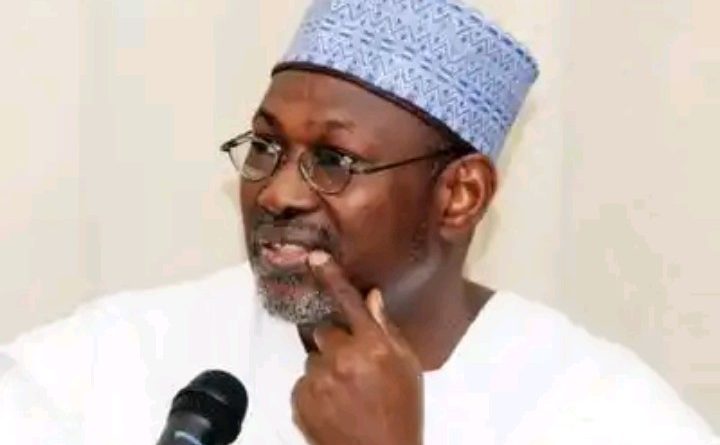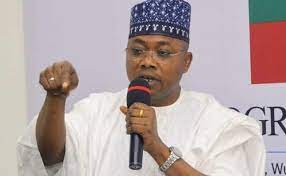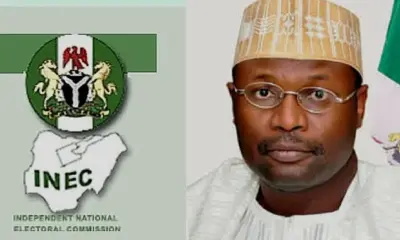News
Why I became silent after 2023 general election – INEC boss

The Independent National Electoral Commission, INEC, on Tuesday explained why it had kept mute on the divergent opinions expressed on its conduct, process and outcome of the 2023 general election.
The INEC Chairman, Prof. Mahmood Yakubu, gave the explanation during the commission’s meeting with Resident Electoral Commissioners (RECs) in Abuja to commence its post-election review of the general election.

Yakubu noted that since the conclusion of the election, diverse opinions have been expressed by political parties, candidates, observers, analysts and the general public on aspects of the elections that took place in February and March.
He said that the commission had consciously not joined in those commentaries in the immediate aftermath of the election for several reasons, including not to undermine the ongoing litigation process at the court.
“The Commission would not want to be seen as defensive or justificatory in joining the ongoing discussions.
“Finally, and perhaps most importantly, several issues around the election are sub-judice and it is not the intention of the Commission to either undermine or promote the chances of litigants in the various election petition courts beyond what is required of us by the legal process.
“Indeed, practically anything coming from the Commission could be cited by litigants as either justifying their claims or an indication of bias against them,’’ Yakubu said.
The INEC boss said that notwithstanding the foregoing, it was necessary for INEC to look at the entire process before, during and after the election to make an informed assessment, learn full lessons from the election, going forward.
He also said that in spite of the diverse views on 2023 polls for a total of 1,491 constituencies (one Presidential, 28 Governorship, 109 Senatorial, 360 Federal Constituencies and 993 State Assembly seats) the general election had its own positive stories.
He added that INEC believed the election was one of the most meticulously prepared for in recent times when compared to some previous elections.
“Among the positive stories is that the security challenge which threatened to derail the elections did not materialise.
“Concerns that the polls will be disrupted by the perennial insecurity across the country fizzled out on Election Day as the elections were largely peaceful.
“Despite currency and fuel challenges and widespread attacks on our personnel and facilities nationwide, the Commission proceeded with the election as scheduled,’’ he said.
Yakubu said that the first set of elections, the Presidential and National Assembly, held as planned for the first time in the last four general elections conducted in the country.
He added that accreditation of voters using the Bimodal Voter Accreditation System (BVAS) had generally been scored very high by voters.
“Our records show that the success rate for BVAS accreditation stands at 98 per cent compared to the Smart Card Reader’s 29.2 per cent during the 2019 general election.
“Above all, despite the divergent opinions about the outcome of the election, the overall outlook suggests that it is a fair reflection of a complex multi-party democracy,’’ Yakubu said.
He further said that INEC record showed that the elections produced the most diverse outcomes ever recorded since 1999.
“Today, five political parties produced state governors, seven parties won senatorial seats, eight are represented in the House of Representatives and nine in State Houses of Assembly.
“Clearly, the 10th National Assembly is certainly the most diverse in party representation since 1999.
“In some states around the country, different political parties control the legislative and executive arms of Government.
“What is clear from these records also is that the days of single party dominance of our national politics are probably gone.
“Furthermore, many prominent candidates lost in the constituencies they contested, and political parties lost in some of their presumed strongholds,’’ he said.
Yakubu said it must be acknowledged that there were also some challenges, which were structural, infrastructural and human in nature.
“Indeed, it is in furtherance of our determination to address the challenges as we prepare for future elections that the Commission is commencing its post-election review engagements today,’’ he explained.


